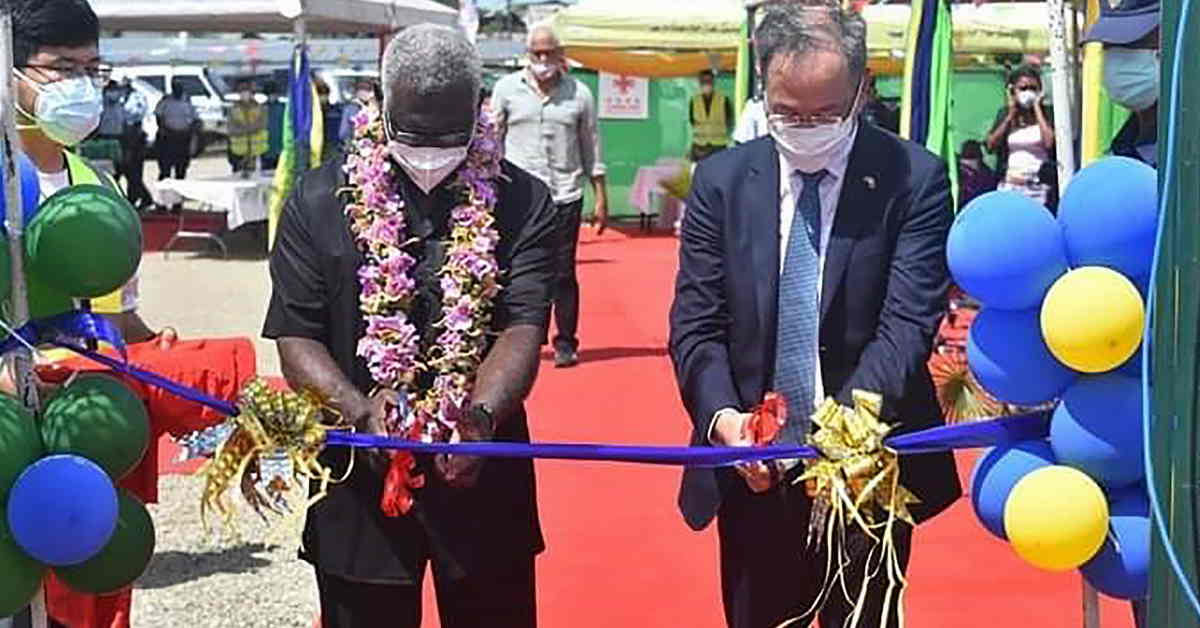United States (US) officials visiting the strategic Solomon Islands on Friday warned of serious repercussions if China were to establish a permanent military presence there after the Pacific nation signed a defence pact with Beijing.
A White House delegation in the capital Honiara delivered the stern warning on the same day that China's ambassador attended an event with Prime Minister Manasseh Sogavare – a sign of the importance both nations are according to the small island state.
The US and Australia – the Pacific nation's traditional allies – are deeply suspicious of the defence deal, fearing it may give China a military foothold in the South Pacific.
The White House said the officials had told Sogavare that the recently signed pact has "potential regional security implications" for Washington and its allies.
"If steps are taken to establish a de facto permanent military presence, power-projection capabilities, or a military installation, the delegation noted that the United States would then have significant concerns and respond accordingly," the White House said in a statement.
National Security Council Indo-Pacific Coordinator Kurt Campbell and Assistant Secretary of State for East Asian and Pacific Affairs Daniel Kritenbrink led the delegation, which also included Pentagon officials.
According to the White House statement, "Sogavare reiterated his specific assurances that there would be no military base, no long-term presence, and no power projection capability, as he has said publicly."
Beijing announced this week it had signed the undisclosed security pact with Honiara.
A draft of the pact shocked countries in the region when it was leaked last month, particularly measures that would allow Chinese naval deployments to the Solomons, which are located less than 2,000 kilometres (1,200 miles) from Australia.
Sogavare says his government signed the deal with "eyes wide open", but declined to tell parliament when the signed version will be made public, and his public assurances have done little to ease concerns in Washington and Canberra.
'Enormous Pressure'
Too late to stop the security deal with China, the White House said its diplomatic delegation was visiting Fiji, Papua New Guinea and the Solomon Islands this week to "ensure our partnerships deliver prosperity, security and peace across the Pacific Islands and the Indo-Pacific".
The US diplomatic team landed in Honiara just three days after the security pact with China was announced.
During a 90-minute meeting with Sogavare and two dozen members of his cabinet and senior staff, the US officials discussed expedited opening of a US embassy, health care assistance, vaccine deliveries and increased "people-to-people ties," the White House said.
The delegation also met with opposition leaders and religious leaders.
Kritenbrink tweeted that he and Campbell had honoured those lost during the Guadalcanal campaign in World War II.
Meanwhile, China's envoy Li Ming attended a ceremony with Sogavare to hand over an elite running track, which is part of a China-funded national stadium complex reportedly worth US$53 million.
The facility will host the 2023 Pacific Games – the first time the event has been staged in the history of the Solomons, where many of the 800,000 citizens live in poverty.
"On behalf of the Chinese government and people of China, we congratulate the government of the Solomon Islands," Li said, as he delivered the latest investment lavished by Beijing on a Pacific nation.
Sogavare's government severed ties with Taiwan in September 2019 in favour of diplomatic relations with China, unlocking investment but stoking inter-island rivalries.
Last November, protests against Sogavare's rule sparked violent riots in the capital, during which much of the city's Chinatown was torched.
While the unrest was partly fuelled by poverty and unemployment, anti-China sentiment was also cited as playing a role.
When asked about China's influence in the Pacific, Australian Prime Minister Scott Morrison told reporters Friday that Beijing was exerting "enormous pressure" on leaders of Pacific Island nations.
Chinese foreign ministry spokesman Zhao Lijian in turn accused "Australian politicians" of "coercive diplomacy" in the region.
